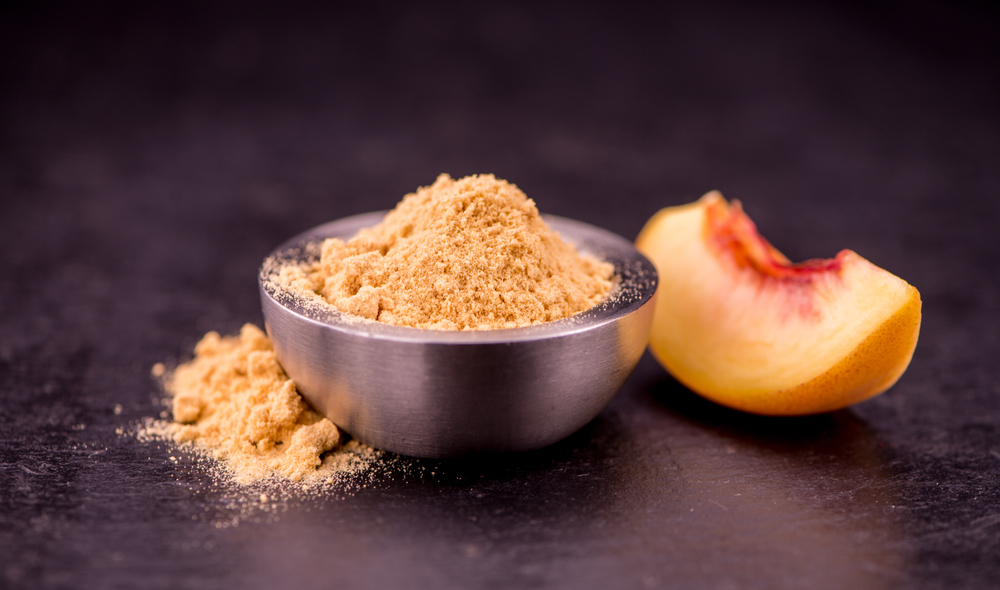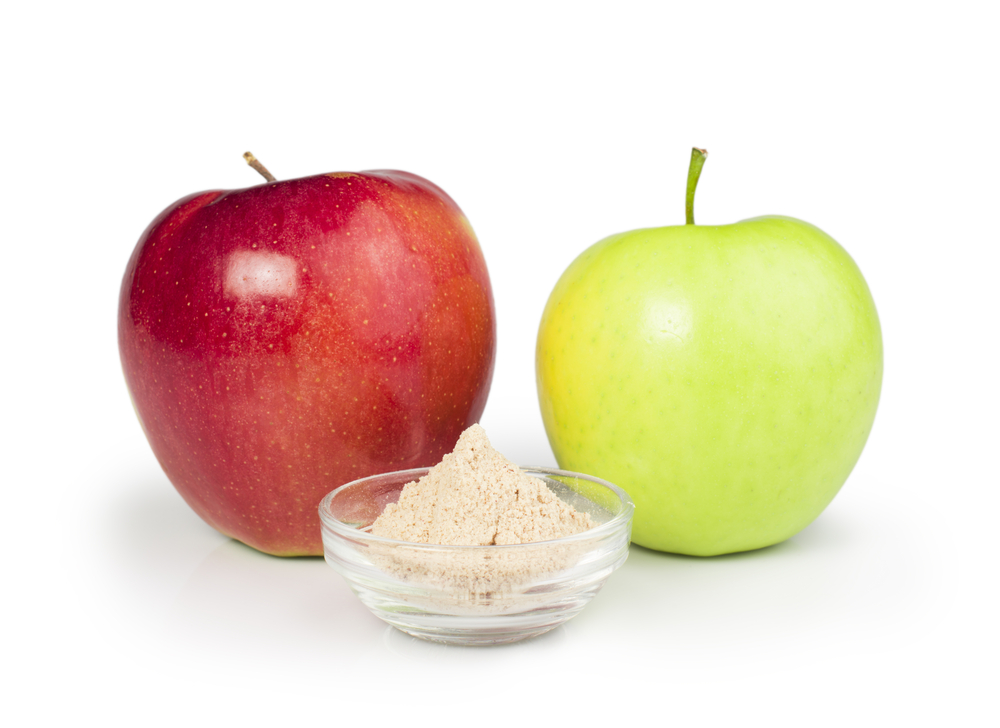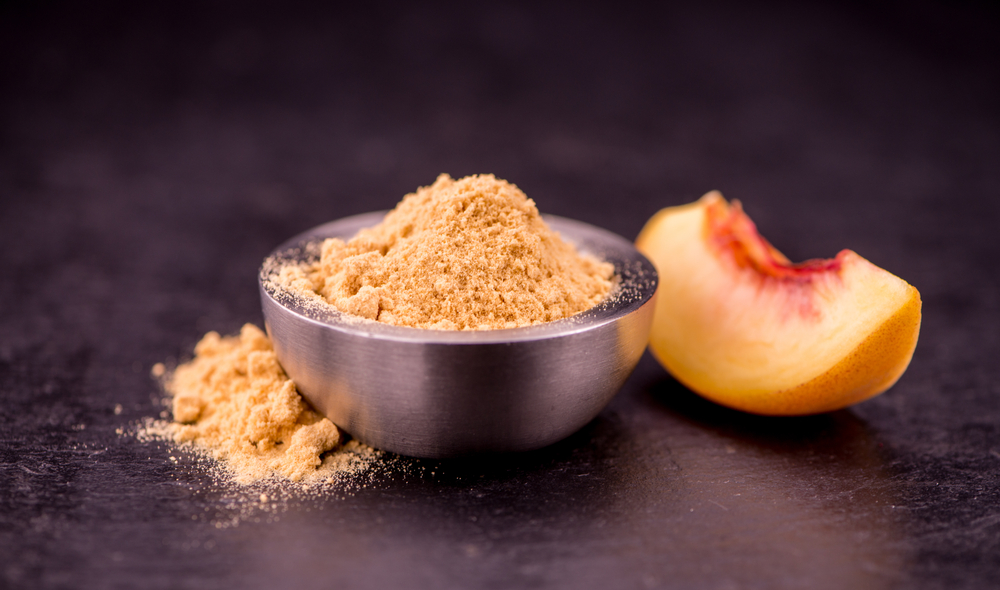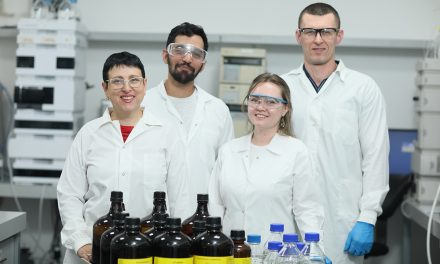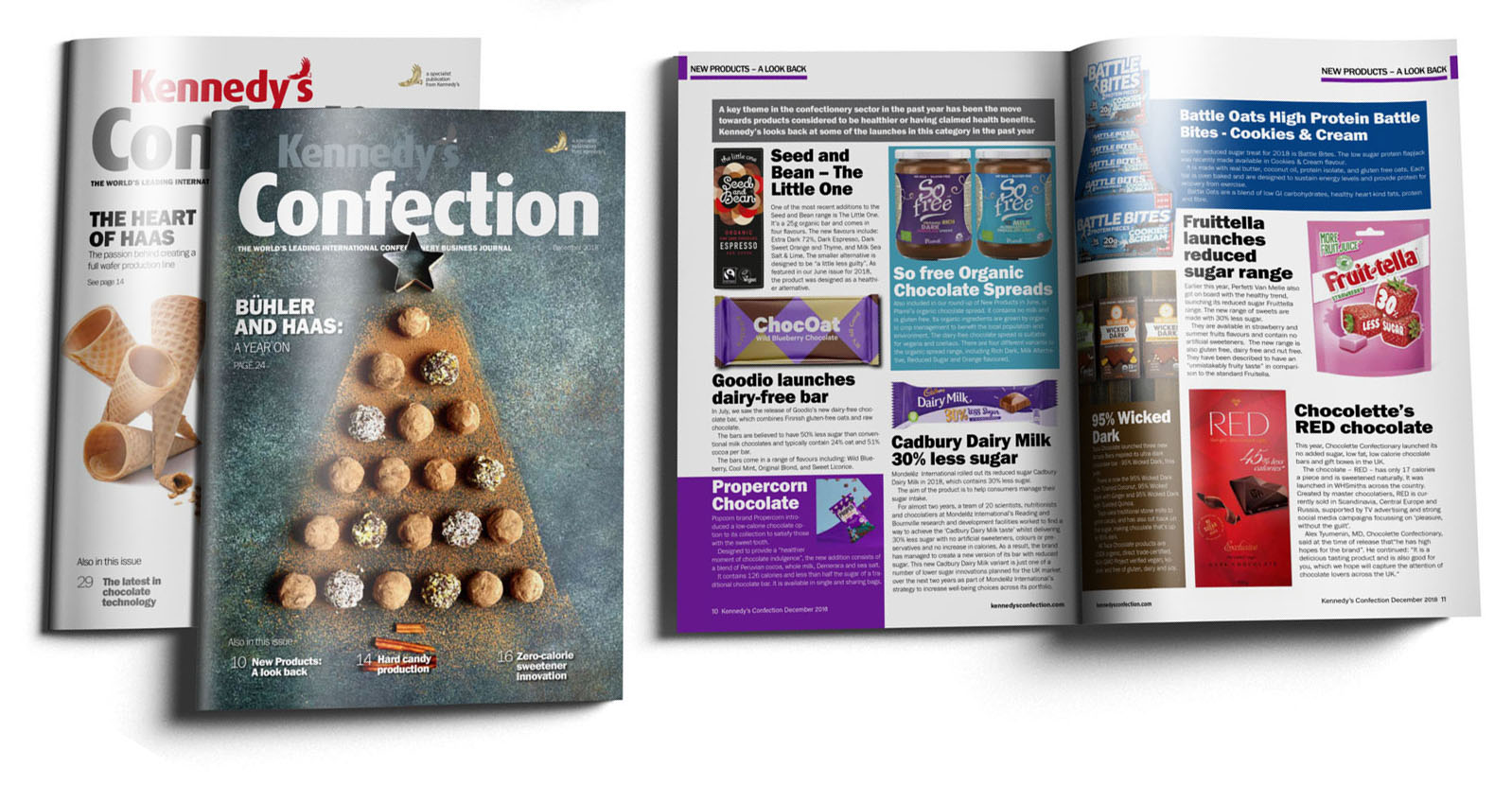As the healthy and clean label ingredient trend continues, Kennedy’s takes a look at the latest innovations in this sector.
Earlier this year, Innova Market Insights noted that the top trend for 2021 is Transparency. With this, the research organisation revealed that companies and brands are “upping their game” to meet this demand.
The Innova Consumer Survey found that 85% of global consumers say that the information available about what is in their food is of “major importance to them”. In addition, 59% say they want to know where their food comes from and how it is made.
With the clean label and clean eating concept becoming a key factor in consumer shopping behaviour, so is a preference for pure and natural ingredients.
With this in mind, here’s an overview of some of the healthy and clean label ingredient innovations being introduced to the sector this month.
Spray-dried fruit powders
Kanegrade supply high quality natural ingredients, including its innovative range of Fruit Powders. They are used in hundreds of applications such as confectionery, sauces, protein mixes, plant-based foods and many more. These fine, high soluble powders have a long shelf life, which makes them ideal and convenient to be used in food manufacturing.
These are created using a process called spray-drying, which creates a powder from fruit juice. The juice is normally concentrated and pasteurised, mixed with a carrier to ensure stable drying and then fed into the spray-dryer.
The mixture is then pumped through a tiny nozzle and into a heated chamber with a vortex of hot air. This causes rapid evaporation of the water in the mixture, resulting in the fruit powder to be collected at the outlet.
Some of its fruit powders include:
Apple Powder: A naturally sweet, versatile product that brings the flavour of the apple fruit to different applications. It can be applied to different areas of food processing to improve flavour and have a fruit presence.
Cherry Powder: This is produced from cherry fruit and are thought to be high in nutrient value and a great source of anthocyanin.
Cranberry Powder: It’s pink in colour and has the flavour and aroma typical of fresh cranberries. It is a fine, free-flowing powder which makes it convenient to use and store during production.
Peach Powder: Made with peaches that are sweet and rich in aromatic essences. Versatile to be used all year round.
Pineapple Powder: Kanegrade states this product has the same sweet and punchy flavour as fresh pineapples. This concentrated fruity powder can be used to sweeten drinks and smoothies or sprinkle onto desserts. According to the ingredient supplier, the demand for pineapple powder is growing with one of the reasons being longer shelf life and easier and less expensive than transporting fresh pineapple or pineapple juice.
Strawberry Powder: The spray-dried strawberry powder captures the natural taste of strawberries. It is designed to add a natural, sweet strawberry flavour to a variety of food and drinks.
Colours without compromise

GNT’s EXBERRY® Coloring Foods provides manufacturers with completely clean and clear labels to allow them to create a range of confectionery.
Natural formulations are more important than ever in the confectionery sector. According to FMCG Gurus’ ‘The Future for Confectionery in 2021’ report, nearly seven in 10 consumers worldwide now find ‘natural’ claims appealing in products including candies and gummies, hard-boiled sweets, gum, and functional and medicinal confectionery.
Steven Taylor, Key Account Manager at GNT, explains: “Creating visually appealing confectionery with clean and clear label declarations can be a challenge. Many colorants used in the industry today feature chemical-sounding names that can undermine their natural credentials and alienate discerning consumers.
“EXBERRY® Coloring Foods are an ideal way to clean up ingredient lists without compromising on products’ appearance. They are made from non-GMO fruit, vegetables, and plants such as carrots, radish, and hibiscus. The crops are grown by farmers working as part of our vertical supply chain and turned into concentrates using physical processing methods such as chopping and boiling.”
Due to their production methods, colouring foods aren’t additives – they’re foods that can be eaten at any stage of the manufacturing process. GNT’s products are all vegan-friendly, halal and kosher and they qualify for completely clean and clear label declarations.
The latest additions to the brands range are EXBERRY® Shade Lime Green, which provides a vibrant yellowish green, and EXBERRY® Shade Jade Green, which offers a vivid bluish green.
Taylor continues: “They are made from the on-trend ingredients turmeric and spirulina and can be listed on the label as “Colouring Food (concentrate of turmeric, spirulina)” or “concentrates (turmeric, spirulina)”, providing shoppers with instant reassurance. Both products are perfect for applications including gummies, fruit jellies, and hard- and soft-panned confectionery.
“The EXBERRY® range includes hundreds of shades from across the whole rainbow and can deliver spectacular shades in almost any application. Our vertically integrated supply chain also gives us exceptional control over our raw materials, allowing us to offer stable prices and year-round availability.”
GNT’s experts can support manufacturers through every stage of the commercialisation process, too, providing advice on issues including colour selection, stability testing, performance, and upscaling. As a result, its Colouring Foods are a trusted solution for many of the world’s leading brands.
Taylor adds: “There has never been a better time to make the switch to EXBERRY®. Whether you’re developing a new product or reformulating a recipe, we can help you achieve the results you need to maximise your confectionery’s appeal.”
Sultanas – a growing category

It’s not just about brands creating the latest and greatest natural ingredients from inside a lab, there is still an importance for those ingredients that are grown outdoors – sultanas and raisins for example.
A prime example of developing and growing natural ingredients for product application is Raisins South Africa – a non-for-profit organisation that represents raisin growers in the Northern and Western Cape. The organisation states that it has seen a 13% increase in production of their newly rebranded SA Sultana in 2021, compared to last year.
Despite the heavy rains and frost that affected parts of the South African crop earlier this year, exports to the UK of the rebranded SA Sultana – previously known as the WP raisin – have this year become a growing category. South Africa has exported 75 tonnes of sultanas to the UK this year, of which 20 tonnes were the new SA Sultanas.
The SA Sultana is one of South Africa’s premium raisin varieties, known for its attractive amber colour and natural sweetness. SA Sultanas are sweeter than Thompson raisins, with a caramelised, honey-like flavour, and has a softer and plumper texture, meaning that it is less chewy and easier to eat. The SA Sultana is a natural product, and its competitive price and lighter colour also gives it an advantage.
Globally there is a trend to reduce residue levels in all food products – South Africa is amongst the global leaders in this regard and is therefore a preferred origin of supply. Thanks to its excellent product flow and long shelf life, the SA Sultana is currently used in bakery products, retail snack bars and muesli products, in cooking and snacking.
Ferdie Botha, CEO of Raisins South Africa, said: “South Africa is looking to grow the SA Sultana product category to 10,000 -12,000 tonnes over the next three to five years. Raisins South Africa, by working with key exporters, wants to ensure that this premium South African product is recognised as a product of excellent quality, intended to be marketed to our premium market clients internationally.
“Although the SA Sultana has been repositioned, the first half of 2021 did not offer the best circumstances to produce raisins in South Africa generally, as we lost 16%-18% of our total product due to the unfavourable weather conditions. The impact on quality was therefore managed to be as selective as possible in the selection and drying of grapes.”
Sultanas are one of four main product categories offered by South Africa, and so the further diversification of their range to include the SA Sultana now enables the industry to deliver more products to the UK market, making their production and export process more sustainable.
Raisins South Africa has revised and developed the new SA Sultana this year to standardise the category and to guide South African raisin packers. The notable sweetness of the SA Sultana is determined by the sweetness of the grapes when harvested, which is why South African producers only harvest the grapes once the grapes have the correct sugar level.
South African Sultanas are produced in the Orange River region. This region in the Northern Cape experiences exceptional levels of sunshine, on average 10.5 hours every day between January and March, which is when the fruit is harvested and naturally sundried. Ranging from 33 – 38 C, the region’s dry, sunny climate, along with the ample supply of water from the rivers, makes ideal growing conditions to cultivate the highest quality sultanas.
Meeting natural demand
From colouring ingredients through to fresh fruit to be used in confectionery application, it’s clear that the clean label and healthy eating trend continues. And it’s these innovations that continue to help the category thrive.
Do you have any news or innovations to share on natural ingredient? Get in touch at editor@kennedys.co.uk

